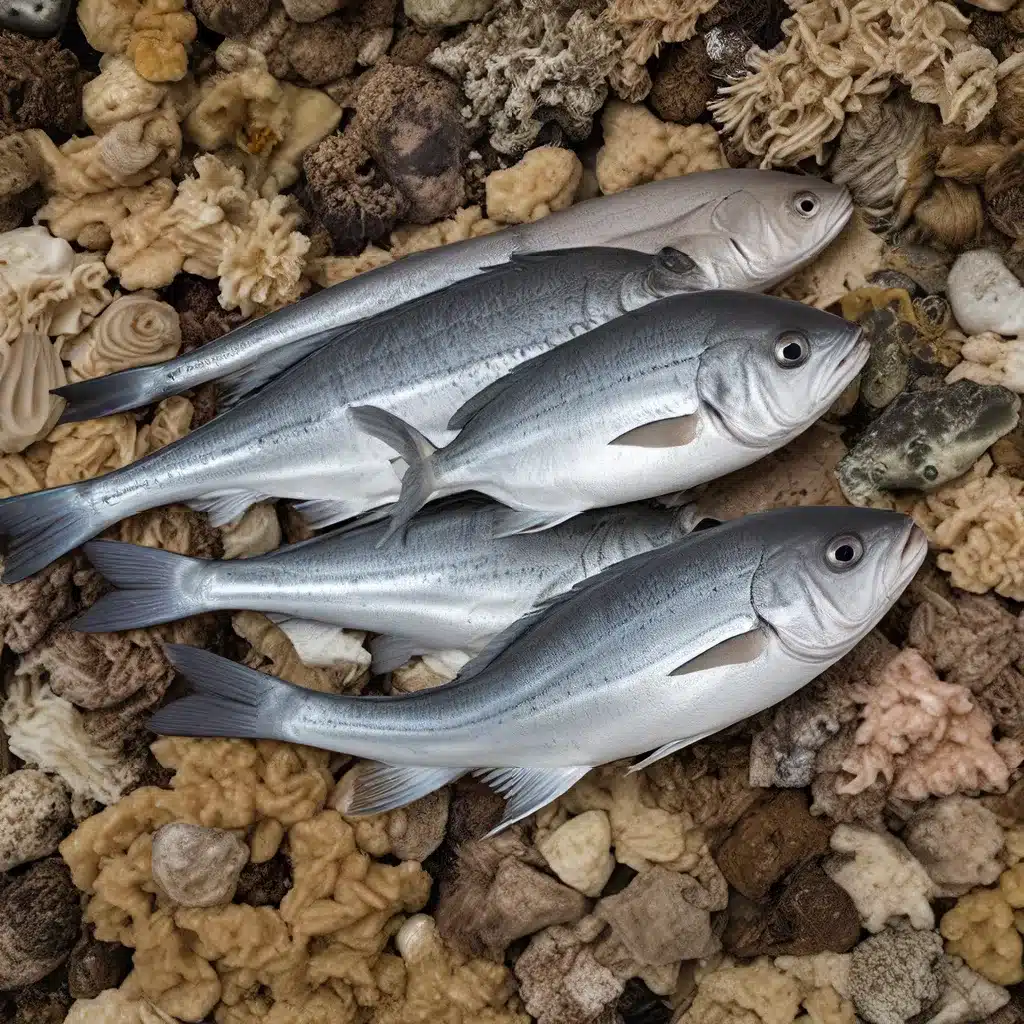
Understanding the Diverse Feeding Habits of Marine Fish
Navigating the intricate world of marine fish nutrition can be a captivating journey for aquarium enthusiasts. These fascinating creatures exhibit a remarkable array of feeding behaviors, each uniquely adapted to their aquatic environments. From the filter-feeding giants to the cunning predators, deciphering the dietary needs of delicate and specialized marine fish species is essential for their optimal care and well-being in the aquarium setting.
One of the key distinguishing features among marine fish is their feeding strategies. The baleen whales, for instance, are renowned for their ability to filter-feed, using their specialized plates called baleen to sieve tiny plankton and krill from the water. In contrast, the toothed whales, such as the orca and sperm whale, are skilled predators, employing their sharp teeth to capture and consume larger prey. This diversity in feeding habits extends to the realm of marine aquarium fish, where aquarists must be mindful of the unique dietary requirements of each species to ensure their long-term health and vitality.
Exploring the Feeding Behaviors of Specialized Marine Fish
Beyond the broad categorization of filter-feeders and predators, marine fish exhibit a remarkable range of specialized feeding behaviors that aquarists must understand to provide the best possible care. For example, the parrotfish is a fascinating reef inhabitant that grazes on the coral itself, using its beak-like teeth to scrape and consume the polyps and algae growing on the reef. Similarly, the angelfish is known for its penchant for nibbling on invertebrates and algae, making it an essential component of a well-balanced reef ecosystem.
Coral reefs are home to a diverse array of marine life, each with its own specialized feeding niche. The butterfly fish, for instance, is renowned for its ability to pick small invertebrates and polyps from the intricate crevices of the reef, while the clownfish is often observed sharing a symbiotic relationship with its anemone host, feeding on the leftover scraps and debris that the anemone generates.
Understanding these unique feeding behaviors is crucial for aquarists who aspire to recreate thriving marine environments in their home aquariums. By tailoring the diet and feeding regimes to the specific needs of each species, aquarists can ensure the health and longevity of their marine fish inhabitants, while also supporting the overall ecosystem balance within the aquarium.
Addressing the Dietary Needs of Delicate Marine Fish Species
Many marine fish species, particularly those found in coral reef habitats, are considered delicate and require specialized care to thrive in the aquarium setting. These fish often have intricate dietary requirements, necessitating a deeper understanding of their natural feeding patterns and nutritional needs.
One such example is the dwarf angelfish, a small and vibrant reef inhabitant that is renowned for its sensitivity to water quality and dietary changes. These fish typically graze on a variety of algae, invertebrates, and detritus, and require a carefully balanced diet to maintain their vibrant coloration and overall health. Aquarists must be diligent in providing a diverse array of high-quality, marine-based foods, as well as ensuring optimal water parameters to cater to the specific needs of these delicate species.
Similarly, the mandarinfish is a captivating marine fish known for its striking appearance and delicate nature. These fish are predominantly carnivorous, feeding on small crustaceans, such as copepods and mysid shrimp, in their natural reef environments. Providing a consistent and appropriate diet, along with meticulous water quality management, is crucial for the successful long-term care of mandarinfish in the aquarium.
King Aquarium understands the importance of addressing the unique dietary needs of delicate and specialized marine fish species. By offering a comprehensive range of high-quality, marine-specific foods and supplements, as well as expert guidance on feeding strategies and water quality management, we empower aquarists to create thriving, naturalistic marine habitats that cater to the specific requirements of these captivating creatures.
Optimizing Feeding Regimes for Marine Fish
Crafting an optimal feeding regime for marine fish is a delicate balance, requiring careful consideration of each species’ unique dietary needs, feeding behaviors, and the overall ecosystem dynamics within the aquarium. Aquarists must not only provide a varied and nutritious diet but also ensure that the feeding schedule and method align with the natural feeding patterns of the inhabitants.
For predatory marine fish, such as the lionfish or the grouper, a diet rich in live or frozen prey, such as small crustaceans and baitfish, is essential. These carnivorous species require frequent, controlled feedings to mimic their natural hunting behaviors and maintain their health and vitality.
In contrast, herbivorous marine fish, like the surgeonfish or the parrotfish, thrive on a diet primarily composed of high-quality marine algae and seaweed. Providing a steady supply of these plant-based food sources, either through live refugiums or targeted supplementation, helps to satisfy the nutritional needs of these grazers and supports the overall ecological balance within the aquarium.
Striking the right balance between these feeding strategies, while also accounting for the needs of omnivorous species, is a hallmark of successful marine aquarium management. By deploying a diverse array of feeding techniques, from targeted feedings to automated feeding systems, aquarists can ensure that each inhabitant receives the appropriate nutrients to flourish.
Conclusion: Embracing the Diversity of Marine Fish Feeding
The captivating world of marine fish is a tapestry of diverse feeding behaviors and specialized nutritional requirements. By delving into the nuances of these feeding strategies, aquarists can unlock the key to creating thriving, naturalistic marine habitats that cater to the unique needs of each inhabitant.
Whether it’s the filter-feeding giants, the cunning predators, or the delicate grazers, understanding and addressing the dietary needs of marine fish species is essential for their long-term health and the overall success of the aquarium ecosystem. Through a combination of high-quality foods, targeted feeding regimes, and meticulous water quality management, aquarists can foster vibrant, balanced marine environments that showcase the incredible diversity of life beneath the waves.

